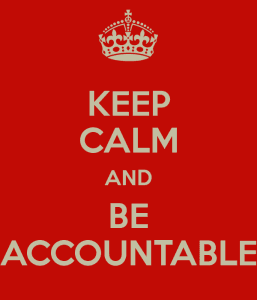In the April 5, 2016 Ask The Headhunter Newsletter, a manager wants to know how to assess an employee for a promotion.
Question
I manage a small team, but I’m pretty new to management. Now that it’s time to promote someone, I’m not happy with the criteria my HR department has given me to justify the promotion. It’s frankly nonsense. I don’t want to promote someone just because they’ve been on the job for two years. I want to use the opportunity to really assess whether they are ready for more responsibility and some new authority, and to help the employee realize what this means for them, for my department and for our company. Do you have any suggestions for how I should handle this so it will mean something?
Nick’s Reply
Well, you’re not managing by rote, I’ll give you that! I’m glad. A promotion should be the result of dialogue between you and the employee, and it should be handled something like a job interview. Of course, you know a lot more about an existing employee than you do someone applying for a job. But I agree that you should not waste the opportunity to help your employee step up to the challenge that a promotion really is. This should be a bit of a test where the employee demonstrates what they can do.
In part, you have to follow your gut, by considering how this person has performed over the past two years. In part, you should base the promotion on your estimate of how they will perform going forward, on the specific tasks and objectives they will soon face. This is actually all about what you already know. The rest is up to the employee: You should absolutely test them in some reasonable way.
Here’s how I’d approach it — but, please, leaven my suggestions with your own good judgment.
2 challenges to a promotion
It’s no easy task for a manager to decide who is worth promoting. It’s always risky to assign additional responsibilities or authority to an employee: Will she lighten the manager’s load or just add to it?
I think there’s a simple initial test for promotability, though you should consider other factors and criteria that make sense to you. My goal with this method is to stimulate a dialogue between you and the employee that will help you decide — and that will also help the employee grasp the importance of new responsibilities and authority.
This is based on the idea that the farther up the ladder a person goes, the more impact (positive or negative) they can have on the bottom line. Before you promote someone, find out how well she understands this idea. This test has two parts.
First, ask the employee to explain (a) how her current job contributes to the company’s profits, and (b) how she thinks the job she may be promoted to impacts profits.
Second, ask (c) what three things she has done in her current job to optimize profits and (d) what three things she would do in the “next job up the ladder” to optimize profits.
(If you’re a job applicant, this approach can work with a prospective boss, too. End your talk with How to Say It: How’d I do?)
The key to these 2 challenges
Remember that as someone’s boss, your goal is to get the best work out of them that you can. That makes you a mentor and a guide. If the employee fails, you fail. So, you must do everything you can (within reason) to help the employee succeed at getting promoted, just as you normally do as her boss to help her get her work done effectively every day.
That means the two challenges listed above must be an open-book test, and you must give the employee adequate time to respond. You must be ready and able to answer any questions she has as she prepares her responses. For example, she will probably need to discuss the definition of profit in the context of her job and your department. (Remember, a big part of your job as a manager is to develop your people, to advise them, and to teach them.)
Encourage the employee to prepare a brief, written report for (a), (b), and (c), and a brief, written plan for (d). Written might mean she prepares a presentation and outline on your whiteboard, or it might mean a short PowerPoint presentation or a narrative. Please: Don’t make it too formal! Casual and conversational is best.
Point out that you are available to help in any way (short of producing the reports, of course). You’re her manager, after all, and managers and employees collaborate all the time in a healthy work environment. You want her to succeed. This will trigger a thoughtful dialogue that will reveal what you need to know about the employee’s acumen and potential. No matter how the employee responds to this, you as the manager will learn a lot. I think you’ll see the mark of a promotable employee pretty readily.
As you might guess, not all employees will be able to deal with this effectively. Promotable employees will get it!
(If you’re the employee, and the promotion you’re getting doesn’t include a raise, learn How to Say It: Mo’ money is the problem!)
If you’re a manager, how do you handle promotions? When you’ve pursued promotions yourself, how did you make your case? What approach other than the one above would you recommend to the manager in this week’s Q&A?
: :


 Instead of just turning down my counter-offer and staying at $80,000, which I would’ve gladly taken, they rescinded the offer completely. The hiring manager wouldn’t even respond to my calls or e-mails, even after he said he’d be glad to discuss any questions.
Instead of just turning down my counter-offer and staying at $80,000, which I would’ve gladly taken, they rescinded the offer completely. The hiring manager wouldn’t even respond to my calls or e-mails, even after he said he’d be glad to discuss any questions. If I get this job — and even with help it’s still a big IF, — it will be my last job. The salary and perks will get me through my last 20 years before retirement, and a few years in, I can even move anywhere I like in the world and work remotely. Sweet.
If I get this job — and even with help it’s still a big IF, — it will be my last job. The salary and perks will get me through my last 20 years before retirement, and a few years in, I can even move anywhere I like in the world and work remotely. Sweet.

 Contrary to the title of this Q&A, you’re not really afraid your millennial daughter is making a career mistake. You’re just afraid that you’re afraid she is. So I give you credit for starting a candid discussion about this, and for giving your daughter a chance.
Contrary to the title of this Q&A, you’re not really afraid your millennial daughter is making a career mistake. You’re just afraid that you’re afraid she is. So I give you credit for starting a candid discussion about this, and for giving your daughter a chance. Question
Question What are your rules for working with headhunters? Have you been burned?
What are your rules for working with headhunters? Have you been burned? My skill set wasn’t developed by being average, and I will not accept anything average. I make my employer lots of money. I impact the bottom line and that will cost you.
My skill set wasn’t developed by being average, and I will not accept anything average. I make my employer lots of money. I impact the bottom line and that will cost you.






